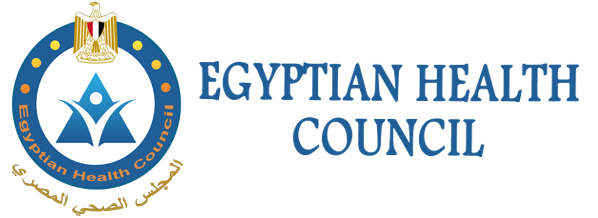The Council aims to regulate the fields of health in Egypt in the areas of post-university education, specialized training, qualification and development of the scientific and clinical level of physicians and workers in various health fields, and it has in particular the following:
(a) Developing the level of medical and health training for physicians and workers in various medical specialties and for graduates of medical and health faculties, and testing them to verify that they have sufficient qualification for safe medical and health practice, to ensure the improvement of health services in the Arab Republic of Egypt, in accordance with the general health and medical policy of the state.
(b) Achieving integration and cooperation in the field of health training between the Council and the various scientific bodies and councils in the fields of the same disciplines inside and outside the Arab Republic of Egypt, in order to achieve international standards for safe health practice, and to keep the Council in line with scientific progress.
1. The national exam for practicing the profession. Developing and supervising standards, procedures and rules for exams that qualify for obtaining a license to practice medical professions and the Egyptian Board, in coordination with the competent authorities, and approving them.
2. The Egyptian Board. The Council grants an accredited certificate called the “Egyptian Board” to all graduates of the faculties of the health sector after passing the training program and the standardized test for each of the health specializations subject to the provisions of this law.
3. Continuing Professional Development (CPD). Adoption of scientific, vocational training and higher health specialized programs for post-university education, and approval of professional certificates for those who pass these programs in the various branches of medical health work from the concerned training authorities accredited by the Council.
4. Establishing records for workers in the public and private health sectors.
5. Establishing national records for diseases and medical interventions.
6. Guidelines.
7. Standards for the application of professional ethical charters. Setting the necessary standards for the application of professional ethical charters, to achieve safe health practices, and work to monitor them, in coordination with the Ministry of Health, the Supreme Council of University Hospitals, and the Medical Services Department of the Armed Forces.
All graduates of the faculties of the health sector, which are the faculties of human medicine, dentistry, pharmacy, physiotherapy, nursing, veterinary medicine, and other health specializations for which a decision is issued by the Prime Minister.
The certificate of the Egyptian Board is a professional certificate in which the doctor trains on a specific specialty. The doctor enters the program for 5 years, part of it is compulsory in the universities and part in the health or army hospitals or hospitals accredited by CEMTA, Thus, each doctor gets the same level of training and has the same efficiency when he gets Egyptian Board certificate.
The training is divided into two parts: First, the infrastructure, where the training will be conducted, in terms of availability of certain requirements from outside clinics, operating rooms, intensive care, and testing devices so that the doctor can perform the basic training tasks. So that we evaluate the infrastructure and whether the conditions are met or not, and it is expected that most university hospitals will be eligible for training, then the educational hospitals in the Ministry of Health, and any hospital that meets the criteria will enter automatically.
The training of the student has nothing to do with the exam, because it will be a central examination by a committee of the Authority, and the exam will be through a "question bank" and not by a specific person, and therefore the coach has nothing to do with the exam, it only trains the student on certain skills so that the student is eligible to enter The final exam was set by the Central Committee of the Commission at the level of the Republic.
The exam will be at the national level and in the same punishment for all students in places equipped for the exam, and after passing the examination, the student can obtain a license to practice the profession.
